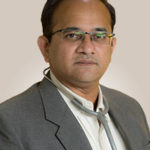7 Common Myths and Facts of Asthma

Myth: Asthma is present only when you face trouble in breathing.
Fact: Asthma is a disease that is difficult to identify. Even without visible symptoms, there is a chance of underlying inflammation in the airways of people with asthma. Asthma exists even when symptoms are not visible. Asthma needs to be controlled by regularly consuming controller medicines and avoiding asthma triggers.
Myth: Every asthma patient should avoid “cold” food like milk, curd etc.
Fact: If in case there is an identifiable food item that has been known to trigger an asthma attack in a particular patient, then that food item must be avoided.
Myth: Asthma symptoms are the same for everyone.
Fact: Asthma affects each person differently. Each person may experience symptoms varying from wheezing, chest tightness, and fatigue, to just coughing. You should know what your or your child’s symptoms are in order to get help quickly.
Myth: Children often outgrow their asthma.
Fact: Asthma is a lifelong disease. Asthma in children can diminish or vanish completely as it is less serious. When children’s lungs grow, the airways expand. However, the symptoms of asthma can get triggered again without prior warning.
Myth: Steroids used in asthma are dangerous and these steroids will stunt growth.
Fact: The National Institutes of Health (NIH) suggests inhaled corticosteroids (ICS) are the preferred treatment for persistent asthma. When used at recommended doses for most patients, the benefits of ICS outweigh the risks. These steroids are not similar to the anabolic steroids used by athletes build muscle. Inhaled corticosteroids do not hinder a child’s growth. Studies have shown that children using inhaled corticosteroids reach normal adult height, although it may cause some delays in their growth early on. A child suffering from asthma symptoms regularly may experience stunted growth. This is due to the fact that a sick child will not grow at the same rate as a good child. Consult a doctor to chalk out an effective action plan to treat your child’s asthma.
Myth: Inhalers are addictive, unsafe and cause many side-effects.
Fact: Inhaled corticosteroid therapy is highly effective in reducing inflammation of airways, improving pulmonary functions, easing asthma symptoms and reducing asthma exacerbations. Its regular use has been associated with substantial reduction in the rates of hospital admissions and rate of deaths from asthma. Unfortunately, in India, almost 80% of asthma patients consume oral medications due to the stigma associated with inhalers. Oral medications lead to more side effects and are required in large dosage in comparison to inhalers, which are more effective.
Myth: Asthmatic children should not play sports or be active.
Fact: Sports and other forms of activity are just as important for someone with asthma as they are for someone without asthma. It is important to control a child’s asthma and make sure they follow the guidelines set by their doctor to take controller medications, as well as ensure that they take medications before the sports activity. They should be aware of an action plan to help prevent asthma attacks.
About Dr Ravindra Nallagonda:
Dr Ravindra Nallagonda, HOD – Department of Pulmonology, is the best pulmonologist and critical care specialist from Hyderabad, Telangana with an experience of 13 years. He is interested in research and publishing studies in pulmonary and critical care medicine. He is the best lung specialist in Hyderabad. He deals with patients suffering from sleep disorders, asthma, tuberculosis and pneumonia also.
About OMNI Hospitals:
At OMNI Hospitals, we have a range of doctors who are not only experts in their field but are dealing with various medical cases on a day to day basis. The combination of experience and expertise is very important to us because our priority is to ensure seamless treatment to our patients while striving to reduce the burden on patient’s family and friends.

HOD – Dept. of Pulmonology, Sleep Medicine and Critical Care
